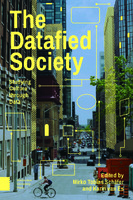The Datafied Society. Studying Culture through Data
Contributor(s)
van Es, Karin (editor)
Schäfer, Mirko Tobias (editor)
Language
EnglishAbstract
As more and more aspects of everyday life are turned into machine-readable data, researchers are provided with rich resources for researching society. The novel methods and innovative tools to work with this data not only require new knowledge and skills, but also raise issues concerning the practices of investigation and publication. This book critically reflects on the role of data in academia and society and challenges overly optimistic expectations considering data practices as means for understanding social reality. It introduces its readers to the practices and methods for data analysis and visualization and raises questions not only about the politics of data tools, but also about the ethics in collecting, sifting through data, and presenting data research. AUP S17 Catalogue text
As machine-readable data comes to play an increasingly important role in everyday life, researchers find themselves with rich resources for studying society. The novel methods and tools needed to work with such data require not only new knowledge and skills, but also a new way of thinking about best research practices. This book critically reflects on the role and usefulness of big data, challenging overly optimistic expectations about what such information can reveal, introducing practices and methods for its analysis and visualization, and raising important political and ethical questions regarding its collection, handling, and presentation.
Keywords
social media; data analysis; data journalism; data visualization; internet researchDOI
10.5117/9789462981362ISBN
9789048531011; 9789462987173OCN
982244713Publisher
Amsterdam University PressPublisher website
https://www.aup.nl/Publication date and place
2017Classification
Research and information: general


 Download
Download